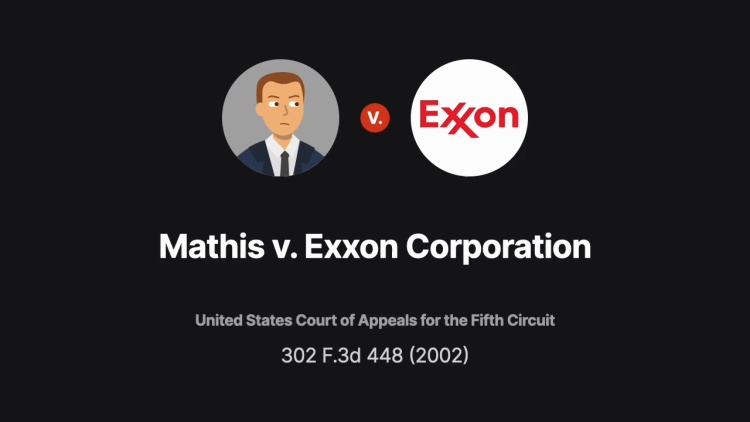Mathis v. Exxon Corporation
United States Court of Appeals for the Fifth Circuit
302 F.3d 448 (2002)
- Written by Tom Syverson, JD
Facts
Exxon Corporation (Exxon) (defendant) sold Exxon-branded gasoline to gas station retailers based on three different arrangements. First, Exxon had franchise contracts that required retail gas stations to purchase gasoline at a dealer tank wagon (DTW) price. Exxon set the DTW price unilaterally, and franchisees were required to purchase a given amount of gasoline each month at Exxon’s DTW price. Second, for jobber or wholesale contracts, Exxon sold the gasoline at a rack price, which was substantially lower than the DTW price. The jobbers or wholesalers would then resell the gasoline to independent gas stations. One reason the franchisees paid the higher DTW price was because Exxon delivered the gas directly to the franchise locations, while the jobbers handled their own transportation. Third, Exxon also sold retail gas through company-operated retail stores, known as CORS, that were directly owned and managed by Exxon. A group of 54 franchisees (plaintiffs) sued Exxon, alleging that Exxon set DTW prices at an unreasonably high level. The franchisees showed that, even when transportation costs were included, the DTW price was substantially higher than the rack price. The high DTW price harmed the franchisees’ ability to compete with other retailers. The franchisees also presented evidence that Exxon planned to drive the franchisees out of business by making franchise locations unprofitable, and that Exxon’s internal plan was to replace the franchises with Exxon company-operated retail stores. Exxon presented evidence that the DTW price was objectively reasonable. The jury awarded damages to the franchisees, and Exxon appealed.
Rule of Law
Issue
Holding and Reasoning (Smith, J.)
What to do next…
Here's why 907,000 law students have relied on our case briefs:
- Written by law professors and practitioners, not other law students. 47,100 briefs, keyed to 996 casebooks. Top-notch customer support.
- The right amount of information, includes the facts, issues, rule of law, holding and reasoning, and any concurrences and dissents.
- Access in your classes, works on your mobile and tablet. Massive library of related video lessons and high quality multiple-choice questions.
- Easy to use, uniform format for every case brief. Written in plain English, not in legalese. Our briefs summarize and simplify; they don’t just repeat the court’s language.





